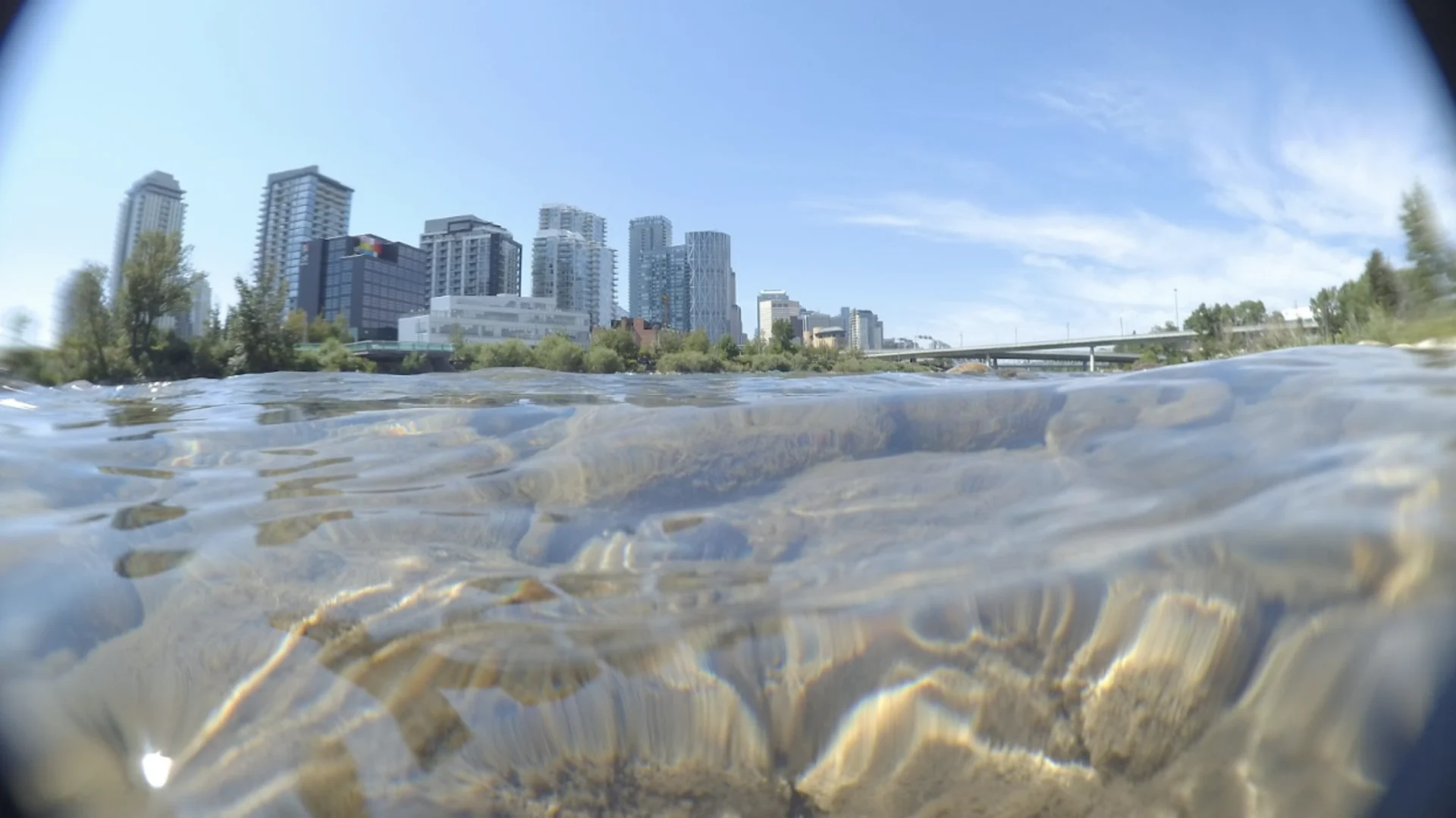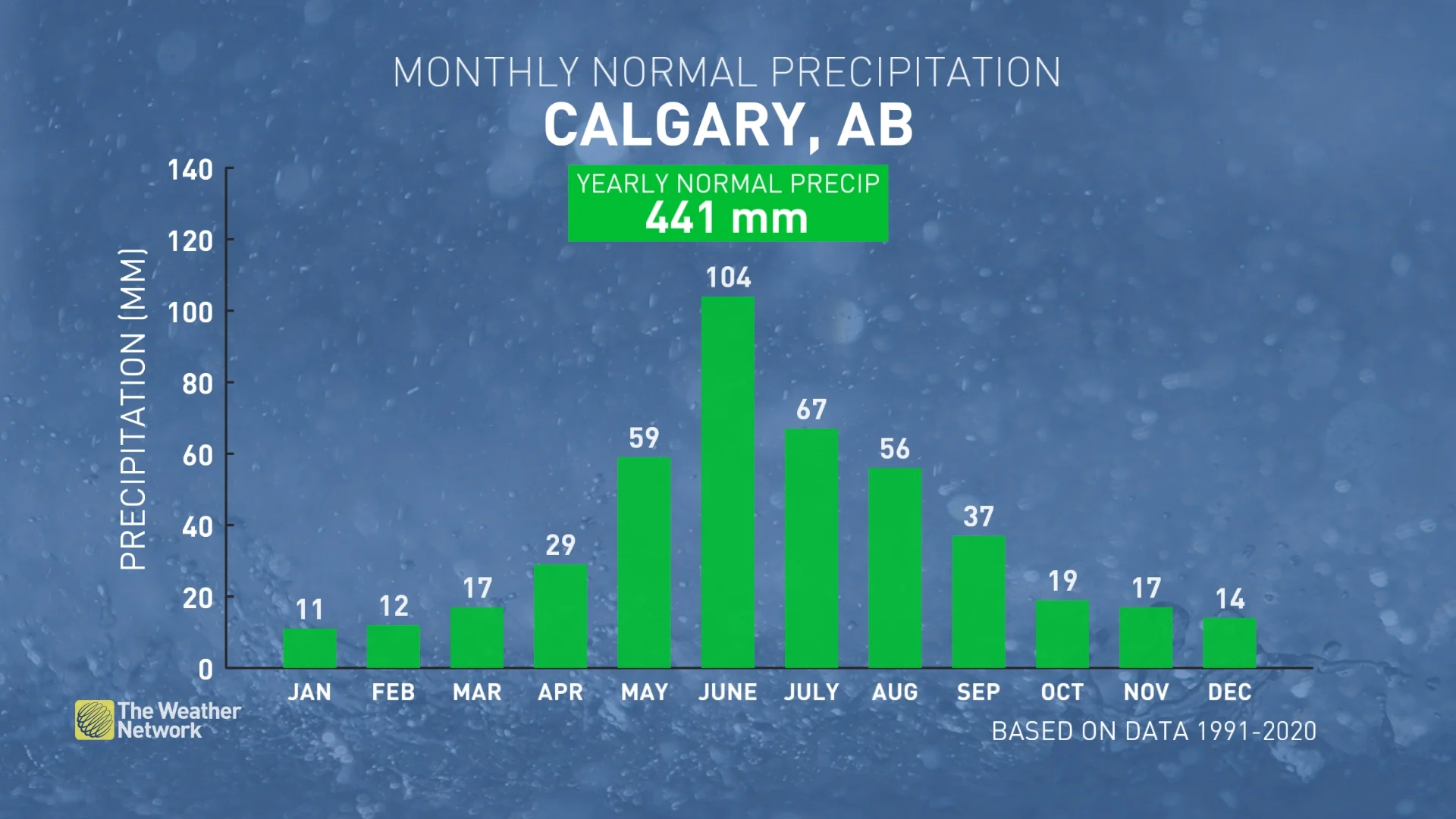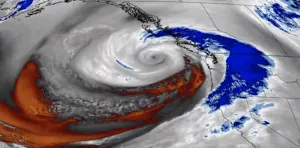
Calgary orders water restrictions as rivers hit historic lows
The announcement comes as Calgary’s two rivers, which grant the city all of its water supply, flow at their lowest natural levels in decades.
The City of Calgary has activated the first stage of its water restriction policy as river levels run low, meaning Calgarians will be subject to limitations on the way they water their lawns, clean their properties and wash their vehicles.
The announcement comes as Calgary’s two rivers, which grant the city all of its water supply, flow at their lowest natural levels in decades.
This is the first time mandatory water restrictions have been enacted in response to drought conditions.
"On the Elbow River, the flow is the lowest we’ve seen since around 2000," said city of Calgary Natural Environment and Adaptation Manager Nicole Newton Tuesday. "On the Bow River, it’s the lowest we’ve seen since 1911."

RELATED: Droughts can be tough reminders of importance of water conservation
Low precipitation in May, June, and July this year followed a low mountain snowpack that melted a month ahead of average this past spring. Calgary typically receives over half of its annual water supply from precipitation that falls during those three months.
Meanwhile, El Niño weather patterns mean it’s likely Calgary will see a dryer-than-normal fall and winter as well.

Stage 1 restrictions limit Calgarians to watering their lawns just two days a week, for up to two hours each day.
Those with even-numbered addresses can water on Wednesday or Saturday. Those with odd-numbered addresses can water their lawns on Thursday and Saturday. Watering times are limited to between 4 a.m. and 7 a.m., 9 a.m. and 11 a.m., and 7 p.m. and 10 p.m.
Residents are also restricted from washing their vehicles at home, washing widewalks, driveways, walkways, outdoor windows and exterior building surfaces, as well as filling fountains or decorative features.
"Right now, the daily demand is around 650 million litres per day. We’re trying to get that down," Drinking Water Distribution Manager Chris Huston said. "We don't measure individuals on a daily basis, which is why we’ll have bylaw officers out there measuring visually."

"We don't measure individuals on a daily basis, which is why we’ll have bylaw officers out there measuring visually."
When it comes to enforcement, Newton said the city will take an "education first approach" when monitoring compliance. Bylaw officers will be on patrol, communicating with residents about the restrictions. Bylaw officers will have the option, though, to fine violators $400.
Apart from bylaw enforcement, Newton offered more motivation to comply with restrictions.
"We estimate that by complying with water restrictions, we can save the equivalent of 40 Olympic swimming pools per day," she said. "Which also equates to the irrigation with water of up to 5000 hectares of crops."
More information on restrictions, including for businesses, can be found here.
Below are a few ways you can help conserve water.
Conserve water on your lawn:
Leave lawn grass two to three inches high
Leaving your grass two to three inches high can also help your lawn retain water.
“The taller grass helps to shade the soil and keep moisture in the soil,” says city of Calgary Climate and Environment Public Program Coordinator Roberta Waddell. “That also helps it create a healthier root system, creating a healthier lawn overall which can hold more moisture with deeper roots, and can help your lawn stay beautiful for longer during severe heat.”
Try to only give your lawn as much water as it needs
It’s easy to overestimate how much water your lawn needs, Waddell says.
"Soils in Calgary are generally clay-based, so they do retain a fair amount of moisture," she explains.
"You can also buy soil moisture meters. Another thing you can do is push a screwdriver into the soil, and if it’s really difficult to put in and it’s been quite dry, those plants likely need some water.
Waddell adds that seeing your lawn turn brown during a dry year isn’t necessarily cause for panic.
"It’s just going dormant. If we get a big rain, it can bounce back. It really takes quite a few weeks of very hot weather for a lawn to actually die."
Check the forecast
Why waste time watering your lawn if the skies are planning to do it for you?
Conserve water In your garden:
Water by hand when possible
While it may be tempting to water your garden with a sprinkler, watering by hand can ensure different parts of your garden don’t receive too much (or too little) water, minimizing wastage.
Use water collected in a rain barrel
A rain barrel can collect rain from a large catchment area, such as the roof of your home, creating a significant source of free water for your yard's needs.
Another advantage is that rainwater is warm and free of minerals like sodium and treatment chemicals like chlorine, which can be damaging to roots and soil.
Fix leaky toilets and fixtures
By city estimates, a chain caught under a toilet flapper can waste 3,000 litres a month. A broken flapper can waste 450,000 litres a month.
A faucet leaking at one drop per second, meanwhile, can waste 2,500 litres a month.
Staying on top of water leaks can not only help protect Calgary’s water supply but can also save you money on your water bill.











